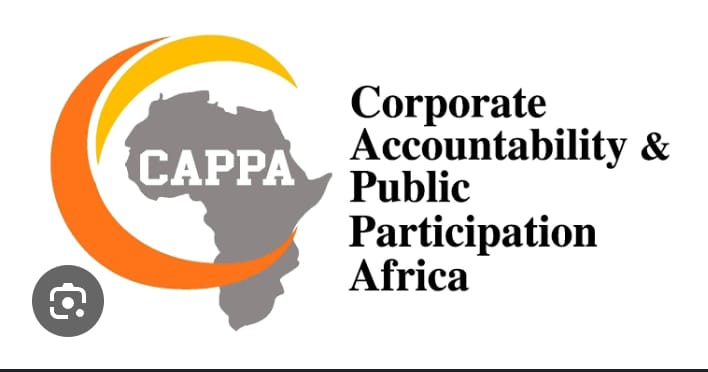By Jane Okeke
The Coordinating Minister of Health and Social Welfare, Prof. Ali Pate, has restated the commitment of the federal government to curb the disturbing surge of Non communicable Diseases (NCDs).
The Minister made this known at a National Conference on Sugar-Sweetened Beverages (SSB) Tax and Healthcare Financing in Abuja on Tuesday, themed: “Health Tax as a Recipe for Improved Healthcare Financing”.
SSBs are non alcoholic drinks that contain added natural sweeteners such as table sugar, high-fructose corn syrup, or fruit juice concentrates, all of which have similar metabolic effects.
Represented by Pharm. (Mrs) Olubunmi Aribeana, Director Food and Drug Services Department of the Ministry, Pate explained that Nigeria faces a rising health burden resulting from high consumption of SSBs which are a major cause of Non-Communicable Diseases (NCDs).
According to him, the number of people with diabetes stood at over 3.6 million in 2021 and is expected to hit 5 million by 2030.
He said, “The consumption of SSBs has been linked to numerous health risks, including obesity, heart disease, weight gain, type 2 diabetes, kidney diseases, non-alcoholic liver disease, tooth decay, cavities, and gout.
“The health burden of SSB consumption is particularly significant in low- and middle-income countries, where rates of obesity and related health problems are on the rise. In Nigeria, we face a growing health crisis with SSB-related diseases such as obesity and diabetes. The associated healthcare costs are escalating at an alarming rate.
“Recent reviews and meta-analyses by the International Diabetes Foundation (IDF) show that as of 2021, over 3.6 million people are diabetic with 53% of these citizens undiagnosed; and this number is expected to rise to about 5 million by the year 2030. The cost of treating diabetes per person has surged from an average of N60,000 in 2011 to N800,000 in 2021, and it is projected to exceed N1,000,000 by 2030.”
He said that increased taxes would serve as a crucial step to stem the consumption of sugary drinks, reduce the prevalence of NCDs, as well as generate revenue for Nigeria’s healthcare sector.
“In 2021, Nigeria joined over 100 countries that have introduced taxes on sugar-sweetened beverages. This tax, embedded in the Finance Act of 2021, levies a ₦10 tax on each litre of all non-alcoholic, sweetened, and carbonated drinks.
“As we look to the future, we must view the SSB tax as a cornerstone of our strategy to improve public health and healthcare financing. By discouraging the consumption of sugar-laden beverages, we aim to reduce the prevalence of obesity and diabetes, and in turn, alleviate the financial burden on our healthcare system,” he said.
In his remarks, the Executive Director, Corporate Accountability and Public Participation Africa (CAPPA), Mr Akinbode Oluwafemi who spoke for National Sugar-Sweetened Beverages Tax Coalition (NSSBTC), worried that NCDs cause 29% of deaths in Nigeria with cardiovascular diseases (CVDs) accounting for 11%. According to him, cases of CVDs have increased by 150% in 20 years, primarily due to unhealthy lifestyles, including excessive consumption of sugar-sweetened beverages and ultra-processed foods.
Oluwafemi called out the SSB industry and big food corporations for choosing profits over public health, exploiting loopholes in Nigeria’s food policies and regulations to push their products, evade accountability, and determine health outcomes.
“The consequences of this abnormality are not just countless Nigerians suffering under the weight of nutrition-related diseases, but families also burdened with soaring out-of-pocket health care expenses, especially in these hard economic times.”
He added that Nigeria consumes over 40 million litres of soft drinks which contributes to an estimated $2.37 billion annually in societal costs for managing obesity and overweight issues, with informal care costs exceeding N58 million.
He commended the federal government for imposing an N10 excise duty on non-alcoholic and sweetened beverages, but added that “At N10 per liter, Nigeria’s current tax on SSBs falls short of the World Health Organisation’s recommendation and global best practice of, a minimum of 20 per cent of total retail prices. In fact, the impact of our current tax rate has been largely eroded by escalating inflationary pressures, rendering it nearly ineffective, hence the need for a re-evaluation.”
Oluwafemi recalled that in 2023, CAPPA and the Centre for the Study of Economies of Africa conducted a simulation study that examined the potential effects of SSBs in Nigeria. “Findings from this research not only underscored the urgent need to address the public health impact of excessive SSB consumption but also identified an effective tax rate of N130 per litre as the most sustainable peg for realising public health goals.”
He therefore called on the Nigerian government to consider an increase of the tax from N10 to N130 per liter or implement a revised tax structure to 50 per cent of the total retail price rate of SSB products as recommended by the Global Tax Force for Health. “This adjustment will not only align with the World Health Organisation’s (WHO) recommendations but also with the 2024 Bloomberg report on effective health taxes.
“Additionally, this increment must be accompanied by a redefinition of SSBs to capture all products that fall within the categorisation, and a resolve to establish a legal framework for earmarking the tax for public health initiatives,” he said.



